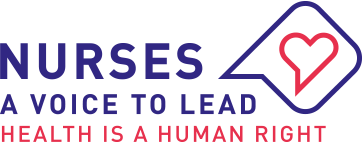The Global Nurse Capacity Building Program
The Global Nurse Capacity Building Program (GNCBP), led by ICAP at Columbia University’s Mailman School of Public Health with funding from the PEPFAR through the US Health Resources and Services Administration (HRSA), aims to improve population health and combat HIV in sub-Saharan Africa by strengthening the quantity and quality of the nursing and midwifery workforce.
GNCBP employs a holistic model to strengthen nursing and midwifery from education to practice through two sub-projects. The Nursing Education Partnership Initiative (NEPI) promotes the production of a new workforce and General Nursing (GN) supports the maintenance of a skilled workforce.
GNCBP provides services across six building blocks of nursing workforce development including:
1) infrastructure improvement
2) curricula revision
3) faculty development
4) clinical skills
5) continuing professional development
6) partnerships for policy and regulation
GNCBP provides a long overdue and much-needed infusion of expertise and resources and generates valuable lessons to inform efforts to enhance nursing and midwifery in sub Saharan Africa. Combined nursing and midwifery training and the redesign of curricula to be competency-based are fundamental changes to the way that nurses are educated. Increasingly, preservice education addresses HIV core competencies and the expanded role of nurses in HIV care and treatment, while innovations such as simulation-based training and e-learning have been shown to be both acceptable and feasible in low-resource settings.
Sub-Saharan Africa faces a critical health workforce shortage. In 2011, there were only 1.03 doctors, nurses and midwives for every 1000 people in Africa, falling far short of the WHO minimum standard of 4.45 per 1000 population. This shortage of health workers inhibits access to quality health care and contributes directly to poor health outcomes. In response, the U.S. government committed to training 140,000 new health care workers through the President’s Emergency Plan for AIDS Relief (PEPFAR). HIV is a critical burden on population health in sub-Saharan Africa. Although more people now have access to life-saving HIV treatment, critical shortages of nurses, midwives, and physicians continue to be the norm. At present, only 40% of people in sub-Saharan Africa who need treatment have access to it and an estimated 1.9 million new infections occur annually, adding to the strain on overall health services and HIV service capacity.
The region faces a significant burden of disease and very limited availability of human resources for health. In 2006, WHO reported that 25% of the global disease burden was concentrated in sub-Saharan Africa—among just 11% of the world’s population. In addition, the region accounted for only 3% of the world’s total health workforce and a mere 1% of global health expenditure. Ever larger cadres of well-trained nurses are needed in high HIV burden, low-resource settings, as test and treat approaches to comprehensive HIV care are implemented and more patients require care for comorbidities and concurrent chronic diseases.
To date, GNCBP has achieved impressive results, with 13,146 nursing and midwifery students having graduated from 22 schools and 5,550 nurses having received in-service training. Over 4,000 faculty in 22 nursing schools in six countries have received continuing education through GNCBP in clinical skills, education, and research at the specialty certificate, Master’s and PhD levels. These schools also received installation enhancements and nationally accredited curricula was developed or revised. GNCBP has supported enhancement of nursing policy and regulation in each country including the development of the first nursing council in Mozambique and the first appointment of a nurse to the national human resources for health committee within the Federal Ministry of Health in Ethiopia.
Clinical skills training has been enhanced in GNCBP-supported schools through clinical simulation labs to enhance students’ confidence before entering the clinical setting, and model wards with trained preceptors to provide students with quality clinical training and supervision in the health facility setting. CPD courses have been developed through GNCBP including three e-learning courses to provide updates to practicing nurses in key HIV areas.

